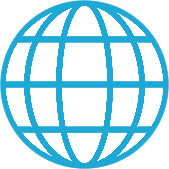![The evolution of workplaces - David D'Souza [Interview] | peopleHum](https://assets-global.website-files.com/62d84b3d3ba446b2ec041a19/62d84b3d3ba446be910423fa_download.jpeg)
About David D'Souza
David D'Souza is the Membership Director at CIPD with over 150,000 members, committed to championing better work and working lives. He leads a range of business areas including Membership Development, Customer Service, and Professional Networks. He’s also a regular keynote speaker and writer on people and the world of work, focusing on the links between behavioral science and HR/L&D. He has been featured in industry and national media including the BBC (radio and TV), Forbes, and the guardian. We are happy to have someone of his stature share his views with us today!
Sumitha Mariyam
![The evolution of workplaces - David D'Souza [Interview] | peopleHum](https://assets-global.website-files.com/62d84b3d3ba446b2ec041a19/62d84b3d3ba4464b4b04241c_Sumitha.jpeg)
We have the pleasure of welcoming David today to our interview series. I’m Sumitha Mariyam from the peopleHum team. Before we begin, just a quick introduction of peopleHum. PeopleHum is an end-to-end, one-view, integrated human capital management automation platform, the winner of the 2019 global Codie Award for HCM that is specifically built for crafted employee experiences and the future of work with automation and AI technologies.
We run the peopleHum blog and video channel which receives upwards of 200,000 visitors a year and publish around 2 interviews with well-known names globally, every month.
Sumitha
Welcome, David, we are thrilled to have you
David
Delighted to be here, very excited for the next part of the conversation.
Sumitha
Great.
So moving onto our first question I would like to ask you, how do you see the changes that technology brings changing the way we work & the skill we need in order to keep up with the disruption that is expected with the advancement of Automation and AI?
David
It's a really interesting time to be talking about this because obviously, but we're in lockdown and as much of the world is. And I think lots of the conversations that have taken place around technology over the last few years have been theoretical conversations.
Theoretically, we could all work from home, theoretically, we could all collaborate in different ways using different technologies. And now what we're seeing is also people being forced into that behavior very rapidly and accelerating through that change and adoption.
So I have been talking for years about automation & its impact on workplaces and workforce and the way that we live but actually, the way that we live has completely changed over the last few weeks, and The key thing around automation is understanding the uneven distribution of the impact that it will have.
“The key thing around automation is understanding the uneven distribution of the impact that it will have.”
There are a few things when it comes to talking about technology. Just because it exists, it doesn't mean that we use it. I know that there are lots of technologies that we don't use to full potential, and for that, we've had for years but haven't proved to be cost-effective. That's really interesting example here in the UK, and if you went back 20 years, we'd have automatic car washes. Now, actually, there are lots more hand car washes because labor has become so cheap that it's cheaper to utilize that.
But just because automation is possible doesn't mean it will happen but what we are seeing particularly in HR is that lots of low-value processes, ones that need to be done accurately but need to be repeated are far easier to automate than they have been before and then you move into the province of starting to automate or inform better decision making. And that's the challenge that I think we faced internally in HR across workforces.
In general, you're looking at broader automation of, particularly manual tasks. You see that whether that's in warehouses, whether that's the advances that you have in self-driving technology, and as we move closer to that space, you have a fundamental imbalance in the skills that you need in the economy.
And so people are talking about the need for data scientists, for instance, well it's not the case that the person driving your taxi last week is likely to be moving into data science development rapidly. So we need to think about the flexibility of the workforces that we have as well. So just because jobs decrease in one place doesn't mean that they'll be filled by the people being displaced in other areas. So it is a really exciting time to be alive. We have the ability to solve lots of problems through automation, including problems to do with the quality of work.
“We have the ability to solve lots of problems through automation, including problems to do with the quality of work.”
But we need to make sure that we're doing that in a mindful fashion and that people are seen as being at the center of that rather than just being an object to that because if there's one thing that is clear from the current crisis, it's how many organizations genuinely do rely on their people, on the thinking and creativity of their people, on the flexibility of their people. And that's hard to get from assistance.
Sumitha
That's a wonderful answer. I think we're all very much relying on technology right now there has to be a fine balance between people and tech for everything to work out perfectly well.
So, you know, with the pandemic going on, what changes do you picture in the idea of the ideal workplace? Once we're out of this crisis, what do you think is going to be the new normal?
David
I think the phrase new normal is a really interesting one. I was reading recently, actually about nuclear war. So it was even worse than the current situation. But it talks about the new abnormal, and I think we're gonna potentially a few years of a really different way of living and a different way of understanding our connections to each other and our connections to work.
I think what we need to decide actively because I think there are different pathways we could go down and what we need to decide actively, how much of this new way of working we want to keep and we want to make sure that we protect and how much of it actually, we need to get back to the way that we were?
I think one of the challenges is that people talk about this as a positive shift that we've made into the utilization of technology and people working remotely, where, at the crux of flexible working and collaboration is the ability to come together in a number of different ways that seat your preference.
“I think one of the challenges is that people talk about this as a positive shift that we've made into the utilization of technology and people working remotely, where, at the crux of flexible working and collaboration is the ability to come together in a number of different ways that seat your preference.”
Whereas at the moment we are just trapped in our houses having to use technology. So there's a massive difference and at the heart of good working practices choice and autonomy for the individuals.
And at the moment we've seen some of the greatest oppression, repression, pressure on individual choice that most of us will have known in our lifetimes. I think lots of people are right in saying that the world will be different. We need to factor that that's not just working practices. That's the economic impact of this as well.
I regularly get asked by HR practitioners, what will be the biggest change for HR over the coming year and on my quite lazy answer is normally it will be something external that we haven't seen coming like the financial crash and tragically, in this case, it's a pandemic. And that is shifting, enforcing changes in the way that we view work.
But also the idea that we will just come out of this in six months time and everything will go back to where it was, doesn't represent the level of economic damage and challenge that we have. So we're maybe engineers and know just how to use technology in a different way. But how we think about people's relationship with the workplace, how we think about employers' obligations to the people that work for him. And we've been talking for years about things like employee brands.
This is the real test about, if you really believe in that, then what you do in these months matters. But we also have been, there isn't a space for fluffiness. It's an economic reality. This is biting. So it is a lovely quote from a journalist called Jon Stewart who says, ‘If you don't stick to your principles when times are tough, they're not principles they are hobbies’.
I think we're going through a period where we're really gonna test how much of what organizations said about how much they care about their people and how they want to operate is true and how much of that was just a nice branding statement.
“I think we're going through a period where we're really gonna test how much of what organizations said about how much they care about their people and how they want to operate is true and how much of that was just a nice branding statement”
...because it was possible because they had the money in the economic conditions to provide.
Sumitha
Yeah, that's absolutely right. I think once we come out of this crisis, the one question that candidates will have to ask their interview panel would be, what did you do during the crisis? How did you take care of your employees? So that's a very valid point. So just out of curiosity,
I wanted to ask you so there are a lot of organizations that are right now saying that, everything is perfect when people are working from home, so why don't we want to invest in buildings? So what are you thoughts on that?
David
I think it's freed up a lot of organizations that used to see working from home as a challenge to productivity to thinking about that in a different way. So it's freed up possibilities, but within possibilities, you always have a choice.
So I think lots of people at the moment are defining working from home very difficult. It will be challenging, either because of the amount of space that they have available to do it or that you have family around them, and that's a difficult environment to work in.
So I think it is likely that there will be less demand for a kind of a concrete real estate in some kind of centralized business districts and somewhere in the housing you could see a drop there, but I think the idea that everything will change lies in the fact that actually people like getting together. They like collaborating face to face.
And I know lots of people already missing the office in a way that they didn't think they would, and again it comes down to the fact that currently this isn't a choice, this is enforced, and where people settle when they have a choice will be the most interesting way of doing it.
“I know lots of people already missing the office in a way that they didn't think they would, and again it comes down to the fact that currently this isn't a choice, this is enforced, and where people settle when they have a choice will be the most interesting way of doing it.”
Not to mention the fact that lots of parts of the economy rely on being face to face and having a physical presence.
So for knowledge workers, this is a very different scenario. And if you work serving coffee or you work in manufacturing or you work in construction, remote work isn't a great concept for you.
So I think we need to make sure that we think about the economy in the round but also, I think whilst it has opened up many organization's eyes to what's possible, if they just shift that being compulsory or if they make that move purely on the grounds of cost-saving rather than thinking about what's the best way for people to work, be productive and drop off the community, then potentially, we just end up with a cyclical piece where everyone starts working from home, and then a few years time they're missing the connections, and you have pioneering organizations that build offices and that seems a strange way first to go.
So as a species, we tend to kind of bounce between different polar opposites, and I'll say remote working and everyone in the office, two of those opposites we need to work out for each company. One for each person ideally because that's a natural choice. What are their options for seeing them?
Sumitha
Yeah, so even I think, organizations are going to have a more relaxed policy, more relaxed work from the home policy so that people can actually choose where to work from. And they wake up and they find that ’Oh I'm going to be productive at home. I can do that. And if I want, If I feel like going to the office, I can also do that’ So yeah, that's right.
David
Yeah, and expect that to be the case in offices as well. So different areas of the office where depending on the nature of the work you need to do, there are different spaces you can access. So I think when we want to work from home when you want to work from a park, a coffee shop, a library The challenge is actually, how do you free people up to work in a place that's going to be most productive for them.
“The challenge is actually, how do you free people up to work in a place that's going to be most productive for them.”
And if organizations could make that shift by having a bit more trust in people, that will be a positive to come from a very bad situation.
Sumitha
I think that is something that we're going to learn from this particular situation. Organizations have to trust more, and delegate more by working from home.
So you know, moving to evidence-based management. So what do you think are the critical components that organizations need to consider when developing an evidence-based model?
David
The key to evidence-based management or an evidence-based approach is humility because it's really easy for us to understand a belief that the things that we're doing have been adding value because we worked really hard on them.
“The key to evidence-based management or an evidence-based approach is humility because it's really easy for us to understand a belief that the things that we're doing have been adding value because we worked really hard on them.”
So the best way of kind of adopting an evidence-based approach is to think really systematically about what's the best way of us getting an answer that's most likely to be the right answer in this situation.
It's not about truth. That's a really difficult concept. But actually, have we looked at enough things from enough angles with enough openness to be able to say that we've evaluated the options properly and we're willing to declare that we've made a mistake if things aren't going alright.
So I always say, with the amount of L&D teams I worked with over the years that have claimed incredible return on investment. Every company would be the size of Google if they're all true. And that's because we try and shift facts. We are trying to shift figures certainly to prove ourselves right.
So start the destruction approach. Set time aside before you commit 20 actions to evaluate what research is there, what do you understand from your own experience? What does the organization's data tell you about the situation that you're currently in and then work through and build a high process about what you're going to do, and it doesn't need to take long.
It could be if you've got half an hour, take half an hour. What we generally know about this situation. What should we be doing? Come up with a plan and then test that hypothesis and people say it's a slower process, but actually, it's far faster. Been spending a year on something and then realizing you haven't made the difference that you'd like to. Evidence-based management provides a framework for you to be able to do that.
"Been spending a year on something and then realizing you haven't made the difference that you'd like to. Evidence-based management provides a framework for you to be able to do that."
So many HR directors that I speak to if you ask them for their last year's plan they'll be really proud of the work that their team has done, and they'll be able to point to some things that they feel they have achieved. Quite often they haven't made the shift in the organization that they would have wanted to.
So we've got some good resources, say CIPD but there's also an organization called Sigma the center for evidence-based management. Go on their website and they've got some free tools. You can look out and help build that kind of approach. But humility and curiosity is the key.
Sumitha
That's a wonderful concept.
So how do you think the employee expectations from the workplace has changed over the years? I mean, if they have changed, what do you think that the factor is that contributed to the change.
David
It is really interesting as now I mean, there's a raft of research out there about generational differences and then there's a counter raft of research about how those are overblown, and if I think back over my career I think our expectations of technology in the workplace have fundamentally changed people skills around those. And I think there's a growing focus on environmental impact in lots of workplaces and an expectation that organizations operate in an ethical way. And I think social media has actually driven lots of those changes.
“And I think there's a growing focus on environmental impact in lots of workplaces and an expectation that organizations operate in an ethical way. And I think social media has actually driven lots of those changes.”
If you're a slightly evil company, you could probably get away with that for a relatively long amount of time. What we've seen now is that things come out into the open far more often if you're treating your employees badly, so it's like Glass Door and others will provide an insight into that.
So I think you asked a really interesting question earlier. You made the suggestion that after this, people will be asking in interviews, how did you treat your people during this crisis?
I don't think they'll be asking it in an interview, I think I'll be looking for evidence. Maybe talking to people saying how you were treated, which is a really different dynamic in the way we communicate, has fundamentally changed and shifted the amount of connections that people have.
And I know they call them friends on Facebook but they're probably not that. The amount of connections we have and the access to data is really different and that, I think, changes the way that people evaluate organizations fundamentally. The thing is that there are some overblown kinds of suggestions around certainly in the UK we have this notion of a 'job for life' when we went for an organization to stay there forever.
Now millennials are just shifting from one job to another every week, and the research behind that would suggest that that isn't true. I think what has happened is the people doing that research have grown older. People like me have gotten older so we feel more stable as it looks as though people coming into the workforce influx. I think what an interesting question to ask at any point in time is how much do human beings stay the same. I think it's not hugely different.
I think maybe there's something more challenging in the system and we get that from some of the dynamics and the fact that people have voices in different ways and spaces.
But if you asked people 30 years ago, would you like your career that offered you development, stimulation, to work for someone that inspired you and to work for an organization doing good things. They wouldn't have turned you down then and I don't think anyone would turn you down now. So I think we can overplay the differences and actually, the similarities are relatively consistent.
And what's interesting is we still have organizations failing to deliver on those basic things now, failing to be transparent around pay, to be transparent around progression and to provide good quality working care for people, that was a challenge 50 years ago, still a challenge today, probably will be tomorrow.
"And what's interesting is we still have organizations failing to deliver on those basic things now, failing to be transparent around pay, to be transparent around progression and to provide good quality working care for people, that was a challenge 50 years ago, still a challenge today, probably will be tomorrow.”
Sumitha
So do you think that age-old organizations are, trying but they're not getting there, they're trying to evolve into more casual workplace culture and, new age organizations, the startups of today the millennial entrepreneurs are finding it easier to get more casual with culture and, calling out on people who are doing all sorts of injustice and do you think that is the case right now?
David
Yeah, it's easier to start from a blank sheet of paper and to build something than it is to change some of the corporate monoliths that we know exists. If we have 200,000 employees getting them to have a really different relationship from each other in the organization, it's far more challenging than three of you sitting in an office and going, “what are we gonna build here?”
But I think you also see some genuine shifts from some of the larger organizations. But, if you want to look for and the easiest way to do it is to know, have inbuilt habits or behaviors that are already best, and to start from fresh. But it is absolutely possible to change some of the more enduring organizations as well.
And there's some of the most interesting challenges for HR practitioners and is not just startups because it's exciting and you can build whatever you like, but actually take a large organization or a historic organization and take it through a phase of change and then modernize it. Because that involves a different skill set. So I think that both challenges I think you're absolutely right and calling out that It's probably harder to do it if you've got ingrained behaviors and that's part of the challenge.
“It's probably harder to do it if you've got ingrained behaviors and that's part of the challenge.”
Sumitha
Yeah, so we are talking a lot about the millennial workforce, and, we have seen a rise in the Gig workers right now. It's not just delivery boys or coffee servers who are gig workers anymore. We have, like, more executives who are like let's work for a few months and take a break for another three months
So with the rise in the gig economy, how do you think this is going to fit in the organizational setup that we have right now. What do you think is the future of the gig economy?
David
I think it's fundamentally changed over the last month, I think, and you can imagine over the next few years that security of income and confidence in income will be a prime driver for people and in a period of what may not just be a recession, but maybe depression. So people are talking about this being the biggest global crisis since the Second World War.
In that case Continuity of income will be a huge, huge driver of people in the way that it hasn't been before.
“Continuity of income will be a huge, huge driver of people in the way that it hasn't been before.”
So I think in the UK certainly the recent crisis has raised questions over people's rights and expectations as gig workers and there's an appreciation of how diminished those rights are compared to some people in the permanent workforce.
And whereas people you know in some gig work would have preferred it due to flexibility and the flexibility only really works for people if they're confident that they're going to be able to get work. Where work is scarce, actually, that's a highly competitive environment. Do you want to secure that?
I think similar to some of the conversations around disruption, we've had actual disruption now, and I think it will disrupt the gig economy in a very different way.
And I would hope that there would be more governmental pressure and societal pressure to ensure that people who work in insecure roles have better security in terms of provisional care and that I also think the preference for that type of work will probably diminish just because you want to work for an organization that you know it's going to exist in three months time, six months time.
Sumitha
Yeah, I think everyone wants that security right now. Like after we come out of this also being secured, being financially secure, is going to be one of the prime concerns. So for designing a good employee experience, we need a great organizational culture.
So how would you advise organizations? If you can give them a few pointers on how to build a good organizational culture, what would they be?
David
I think that the best way to get a good organizational culture fit is such a thing because cultures should be fit for purpose, for the organization and its challenges is just to be really open to listening and it's now probably even more complicated than that.
“I think clarity of communication and ability to listen in response are probably the key things that are going on in any organization.”
And listening get you good ideas, listening gets you an understanding of the context people are working in, listening gets you the ability to change and adapt to working practices to make sure that they are allowing people to be productive, to contribute.
In the absence of listening, what you have is the culture that the senior members of the organization would like to see and the distance between those two things can quite often be great. And you went back to the example of people working for organizations with outdated working practices.
That's a lack of ability to listen and respond or its arrogance in believing that there's a right way to do things. So I think organizations that are open to challenge and to reflect on themselves tend to have the healthiest culture because it's most reflective of the way that people want and need to work.
And there have been some really interesting models over the last few years of organizations being incredibly open in a way that they work and again you got those polar pieces within organizations going, everyone's got complete autonomy over here and organizations will command and control and what's healthiest is finding the balance that works for the organization at that time.
I think people say that you can't define culture, you can. There are lots of really good and useful definitions of culture, so when anyone concerned about organizational culture, do the background work, read some books and speak to some people, listen.
"And the organization culture isn't what you laminate and put up on the wall. It's what people say when they don't think their boss is around."
And it's seen as you understand that you understand the power of voicing your opinion. And I spent a large chunk of the last year taking every single person's who reports in any of my teams out for coffee, one by one to kind of get, 'How am I doing? ' and to learn from them, but also to break down some of that gap between being in a leadership position or being someone who feels they don't have a proportionate voice.
And if you accept with the best ideas an organization isn't likely to come from the CEO waking up one day and going ‘How's ya I have a great idea’. But...
“It's the strength of all of the people in the organization thinking about, caring about the same goal, and you have to open up people's voice as effectively as you can and be absolutely passionate about it.”
What I would say, whatever you think about the culture of Amazon. I know people have really mixed feelings about that, and if you look at their cultural guidelines and their principles of operating, most organizations will benefit from them, they are absolutely passionate about their customers.
Their kind of disagreement commit philosophy, which is to have open conversations around data and information, but then say we're doing this all together. There are some really interesting things. So we've never had a greater ability to look at other organizations and analyze their cultures and see what works and what doesn't.
We've also probably never had more hype about organizations and how great they are. Normally, what you find is after a few years if they fail and everyone goes, 'Ah I could have seen that coming' and just keep listening to your own people and keep listening to your customers. It's never gonna go too far.
Sumitha
Yeah, I definitely think the people who contributed to the culture of an organization, like the forefront of an organization is the people, So definitely yes.
David, if there are any last soundbites that you would like to leave the audience.
David
I think lots of things you would have heard from experts over the last few years, are either irrelevant or they're more relevant than they've ever been. I think there's some work that everyone needs to do to work out with which and because for everyone that was talking about the upcoming disruption, we are a part of it now, we're a large part of it.
But we have to enable people to make a choice in society and in organizations. We have to make the right choices. Otherwise, we will go back to a set of working practices that were already outdated.
“So we have the opportunity to harness technology, to think really hard about the ways of working within organizations and to think about what really matters as people and as organizations.”
And so I come back to that point about listening. Voicing organizations will never be more important.
The ability to connect with each other and have support will never be more important, but also the understanding that people's lives don't start and end with a day at the office that we've seen, you know, I can see you in your lovely home now. I can see the things going on in the background.
People have characters and families and things they care about way outside of the office and we've spoken for a number of years about the fact that all work and life have now started to blend.
That's obviously the case for people now, and you will see colleagues if you work in large organizations or even small ones, that will probably suffer bereavement or challenges or financial hardship. How we step up together to address those issues in the next few years and determine not just the worth of organizations, but the worth of us as HR practitioners.
Sumitha
That's wonderful and thank you so much for coming to our interview. I had a very enriching experience personally, and I'm sure all your insights are going to help our viewers to thank you so much for being on our interview, and let's keep in touch.
David
Lovely. Thank you very much.
Sumitha
Thank you so much.































![The evolution of workplaces - David D'Souza [Interview]](https://assets-global.website-files.com/62d84b3d3ba446b2ec041a19/62d84b3d3ba446ef04043ad8_David%20D%27souza%20.jpg)



.jpg)
![How to stay relevant during a crisis - Rita McGrath [Interview]](https://assets-global.website-files.com/62d84b3d3ba446b2ec041a19/62d84b3d3ba446881d043992_Untitled%20design%20(13).png)
![Transforming adversity into opportunity - Rhett Power [Interview]](https://assets-global.website-files.com/62d84b3d3ba446b2ec041a19/62d84b3d3ba446eee4043850_untitled-design-(4)_optimized.png)












